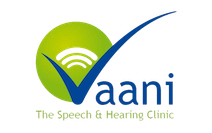 Need Help? Click here!
Need Help? Click here!
How We Work
1. Initial Consultation and Assessment
The first step in treatment at Vaani Clinic (or any similar clinic) typically involves an initial consultation. This step is crucial for understanding the patient's needs, concerns, and symptoms.
For speech therapy: The clinic may conduct a thorough evaluation of speech, language, and communication skills. This could involve:
A discussion about developmental history, medical history, and concerns related to speech or language.
Specific tests to assess articulation, language comprehension, fluency (e.g., stuttering), voice quality, and cognitive communication skills.
For hearing aids: An audiologist will perform a hearing evaluation to determine the type and severity of hearing loss. Tests may include:
Pure-tone audiometry to measure hearing sensitivity.
Speech audiometry to test the ability to understand speech.
Tympanometry to check the health of the middle ear.
A comprehensive discussion about lifestyle needs and preferences regarding hearing aids.
The goal of the assessment is to identify the specific problem and recommend an appropriate treatment plan.
2. Customized Treatment Plans
Once the initial assessments are completed, the clinic will create a personalized treatment plan for the patient. This plan will be based on the findings from the evaluation and could include:
For speech therapy:
Individualized sessions: These could involve exercises to improve speech clarity, language comprehension, or social communication.
Tailored strategies: Depending on the issue (e.g., stuttering, language delays, articulation problems), specific therapies will be used, such as articulation exercises, language games, or cognitive-behavioral therapy for stuttering.
Home exercises: Patients might be given activities to practice at home to reinforce learning.
For hearing aids:
Selection and fitting of devices: Based on the audiological test results, the clinic will suggest appropriate hearing aids. This could involve:
Choosing between different types of hearing aids (behind-the-ear, in-the-ear, etc.).
Programming the devices to match the patient’s specific hearing needs.
Personalized counseling: Guidance on how to use and care for hearing aids, and how to adjust to them in daily life.
3. Therapy or Device Fitting Sessions
Speech Therapy Sessions: Regular sessions (often weekly or bi-weekly) are scheduled. The number and frequency of sessions depend on the severity of the condition. These sessions will focus on specific speech, language, or cognitive goals.
Hearing Aid Fitting and Adjustment: After the hearing aids are chosen, a fitting appointment is scheduled where:
The audiologist will fit the hearing aids and ensure they are comfortable and correctly positioned.
The hearing aids will be programmed to the patient’s specific hearing profile, which may involve adjusting volume, pitch, and other settings based on the audiometry results.
The clinic will provide instructions on how to care for the hearing aids, how to change the batteries, and how to troubleshoot common issues.
4. Follow-Up Care and Adjustments
The clinic will offer follow-up visits to ensure that the treatment plan is effective and that the patient is progressing:
Speech Therapy: Follow-up sessions focus on monitoring improvement and making adjustments to the therapy plan. For example:
New speech challenges may emerge that require different strategies.
Therapies may evolve as the patient’s speech skills improve.
Hearing Aids: Follow-up appointments with an audiologist to ensure:
The hearing aids are comfortable and providing optimal sound quality.
Any issues, like discomfort or malfunction, are addressed.
Further adjustments are made to the hearing aids if necessary (e.g., fine-tuning settings based on feedback from the patient).
5. Patient Education and Empowerment
A key aspect of how Vaani Clinic (or any clinic focused on speech and hearing care) works is ensuring patients are well-educated about their conditions and treatment. This may include:
Patient education on speech/language disorders: Understanding the cause and nature of the issue, as well as how to improve communication skills in everyday life.
Education about hearing loss: Patients are taught how to manage hearing loss with hearing aids, including how to adjust to new sounds and how to maximize the benefits of the devices.
6. Ongoing Support and Maintenance
Hearing Aids: Regular cleaning and maintenance are crucial for the longevity and effectiveness of hearing aids. Many clinics, including Vaani Clinic, offer:
Routine check-ups for hearing aids.
Battery replacement and device servicing.
Repairs if the hearing aids are damaged or not functioning well.
Speech Therapy: Continued progress tracking and additional therapies may be recommended as the patient improves. Some patients may require maintenance therapy to maintain skills or prevent regression.
7. Collaboration with Other Healthcare Providers
If necessary, Vaani Clinic may work alongside other healthcare professionals (such as ENT specialists, pediatricians, or neurologists) to ensure comprehensive care. Collaboration can be especially important if a speech or hearing issue is linked to an underlying medical condition, such as a neurological disorder or chronic ear infection.

